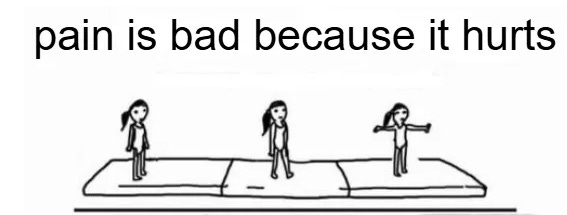Almost a year ago, I wrote an article about what I perceived as a pervasive and toxic ideology that seemed to be capturing the world. I referred to this system of beliefs as “One Life Materialism” since, at its core, the ideology posited that two axioms were true:
The material world is all that exists.
Death is final.
My solution at the time was that we needed to add a third axiom:
The Future matters.
I believed that everything else would flow from there.
But I’ve been grappling with this idea—that the modern world is in a sort of intellectual malaise—for the last year or so, and I’m not confident that the real problem is solely One Life Materialism. Instead, I think it is one of many problems that we face simultaneously. All of these problems can be thought of, in a Nietzschean sense, as life-denying. Each of them manically dances around a central burning flame that casts a shadow on the sky, blotting out the sun and replacing everything with the one and only god: “utility.” Until each of us is transformed into a Utilitarian—an agent of pure utility—engaging in nothing that does not profit us and cut totally loose from our bonds of obligation and duty.
But what is Utilitarianism? Why not just directly quote one of its greatest advocates Bentham? At the very start of Introduction to the Principles of Morals and Legislation, he writes the following:
“Nature has placed mankind under the governance of two sovereign masters, pain and pleasure. It is for them alone to point out what we ought to do, as well as to determine what we shall do. On the one hand, the standard of right and wrong; on the other, the chain of causes and effects, are fastened to their throne.”

In short, there is no “objective” morality above that of pain and pleasure. Pleasure should be sought, and pain should be avoided. The mechanism through which you should assess the quality of governance, the value of a social system, or anything else is through the lens of “utility.” This is the dominant worldview of our time; I’m honestly unsure if any system could long survive believing in anything else. All moral arguments for things like GDP growth are predicated on the idea that as people make more money, they are able to consume more goods and services, which increases their utility.
If I was extremely critical of One Life Materialism, I am not of Utilitarianism—although, to its defenders, I doubt that will matter. Instead, I think we have simply put the horse before the cart on this issue. Because what is pain? What is pleasure? Why do Humans—or life in general—experience pain and pleasure at all? Did Nature just leave two levers—one evil and one good—lying around for man to fumble after in the darkness?
No, it did not. Pain and pleasure are our stimuli and response system, an evolved mechanism through which we coordinate our behavior. Literally, pain and pleasure are our inherited—or often socially engineered—reward function estimators.
I feel pain when I stick my hand into the flame not because Nature has arbitrarily decided that I should, but because fire is destructive, and pain is my body’s way of communicating that something is bad in a Darwinian sense. Pleasure functions the same way in reverse. Since you cannot directly know the actual Darwinian value of a behavior, our body has developed a set of heuristics that approximately estimate whether something is good or bad. But the heuristic/estimator isn’t the actual function we are optimizing1, so when you structure a society around it, you get weird results that philosophers have been bickering about for literally centuries—if not millennia.
Pain and pleasure are an emergent property of Darwinian selection, not some inherent feature of reality. For a totally random example, when a shrimp are thrown on ice to suffocate to death, I don’t doubt that this causes them immense distress. Conversely, when a lion returns to the pride with a dead gazelle—whose suffering was unimaginable—I’m sure the way it feels is lovely. How we arrange these values in our table of arithmetic is enough of a problem to make any one person’s—or an enormous collection of people’s—brain shatter. Oh my would you look at that result? We must have made an miscalculation somewhere.
Instead of trying to balance the lion and the gazelle or the astrophysicist and the shrimp salad, I propose we accept that around the throne of Pain and Pleasure, there is a bigger throne room of Fitness.
Keep reading with a 7-day free trial
Subscribe to Strong Ideas Held Lightly to keep reading this post and get 7 days of free access to the full post archives.



